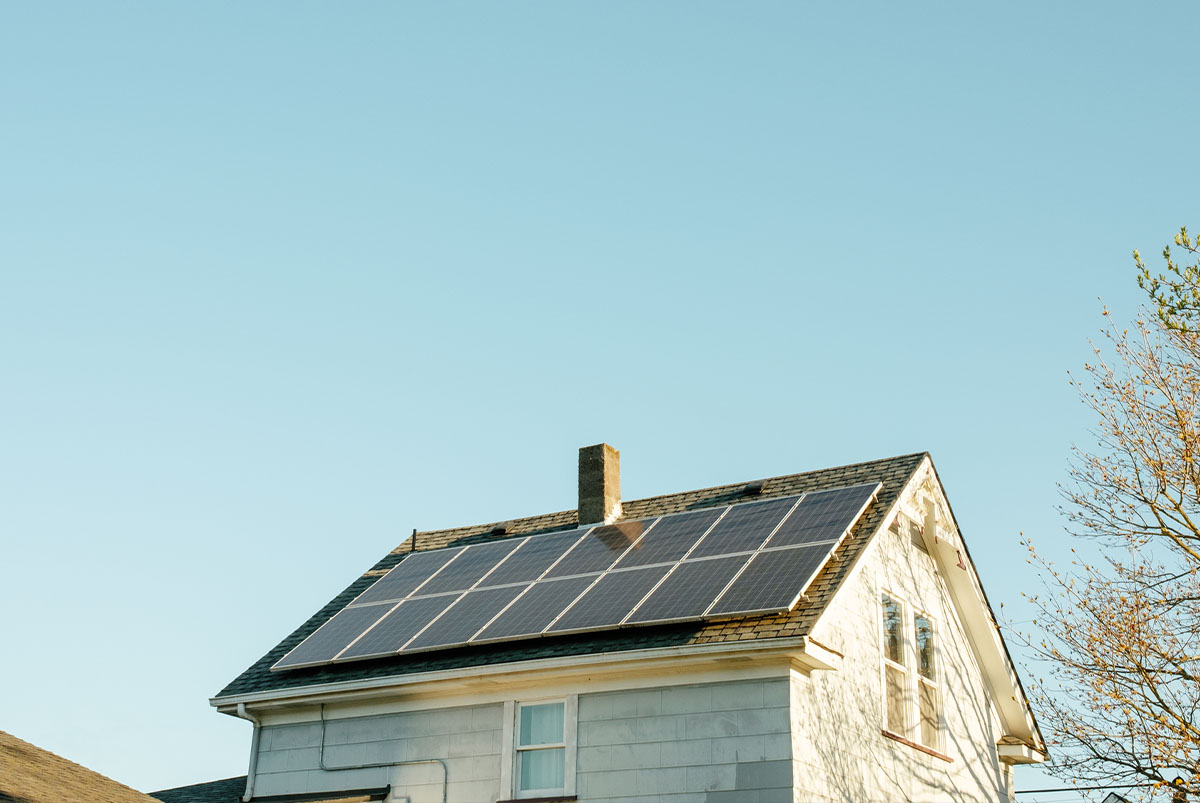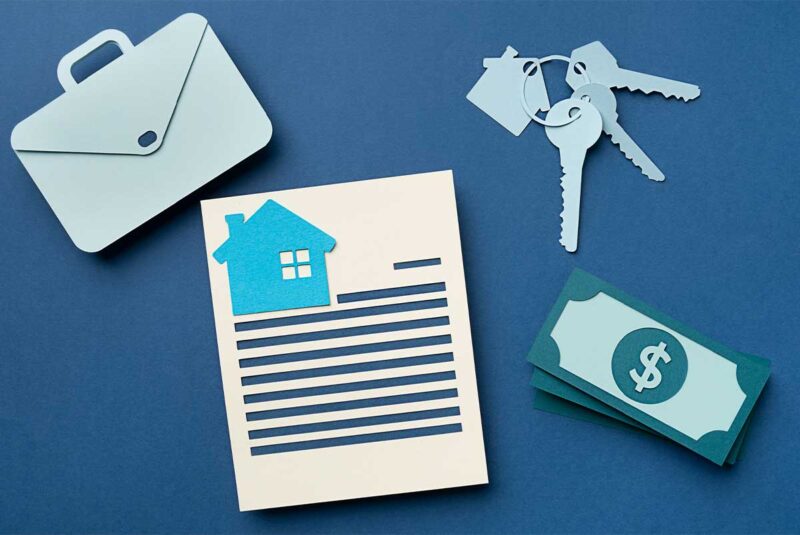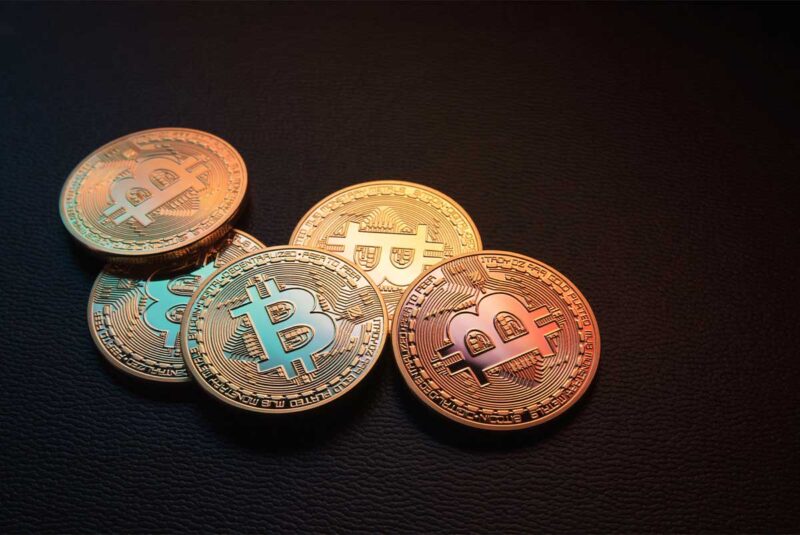Ready To Buy a Home?
Get Approved to Buy a Home
Rocket Mortgage® lets you get to house hunting sooner.
Buying a house with solar panels can be an appealing opportunity. It’s a modern, environmentally friendly option that can substantially lower your electricity bills, increase your home’s value and allow you to commit to a more sustainable lifestyle.
Despite its benefits, buying a home with solar panels can present some unique complications, especially if you plan to finance the home purchase and lease the solar system. In that case, your mortgage may have certain terms and conditions.
With this article, you will learn to identify some of these complications and learn what questions to ask before signing on the dotted line.
How Buying a Home With Solar Panels Works
Buying a home with solar panels is a lot like buying any home. If you’re financing the purchase, you will need to make an offer, get approved for the mortgage, get the home inspected and appraised and close on the deal.
However, depending on who owns the home’s solar panel system, solar panels can impact the sale in a few ways, adding a few extra steps to the financing process (steps that wouldn’t apply if you were buying the house with cash).
If the seller of the home owns the solar panel system, buying a house with solar panels works like any other home purchase. But if the seller leases the solar panels from a third-party provider, the cost of the lease will be transferred over to you (the buyer).
Are you buying a house with owned solar panels?
Buying a home from a seller who owns their solar panel system will not require any additional steps from you. But solar panels typically increase a home’s resale value, so the price of the home will likely be higher.
Are you buying a house with leased solar panels?
Buying a home with leased solar panels can get a little involved. Not only will your lender likely ask for proof of additional income, but you will need to manage two agreements: the mortgage agreement and the power purchase agreement (PPA).
While they’re reviewing your loan application, your mortgage lender will factor in the cost of the lease payments. Before the mortgage can be approved, your lender must confirm you have enough income to cover your mortgage and solar lease payments.
A PAA is a contract between a homeowner and a third-party company to install and maintain an energy system on their property. The homeowner pays the company every month in exchange for the energy output. These contracts last for a set period of time and can either be renewed or terminated.
If you cancel the home’s PPA, the company will remove the solar panels, which will strip value from the property, and you’ll lose the energy and money-saving benefits of the solar system. If you keep the panels, you’ll be responsible for making the payments on the lease.
Are you buying a house with solar panels purchased with a solar loan or PACE financing?
Many homeowners purchase solar panels with solar loans or Property Assessed Clean Energy (PACE) financing. If the seller took out a solar loan and it has an outstanding balance, the buyer won’t have to pay off the balance because the loan is attached to the seller and is the seller’s responsibility.
PACE financing is connected to the property, not the homeowner. If the seller hasn’t paid off the financing by the time they sell the property, the remaining payments will become the buyer’s responsibility.
Mortgage Implications When Buying a Home With Solar Panels
Solar panels can impact a mortgage in a variety of ways.
- If the solar panels are owned by the home seller, it will likely increase the home’s purchase price. You may need to make a larger down payment or make higher monthly mortgage payments.
- Leased solar panels may not affect the purchase price as much as owned solar panels, but even leased panels will boost a property’s value. Leased solar panels may make mortgage approval a bit more challenging because your lender must confirm that you can afford your mortgage and the solar lease payments.
- If a home buyer is not able to comfortably take over lease payments, the third-party solar installation company would uninstall the solar panel system, immediately dropping the value of the home.
Do Solar Panels Cause Your Homeowners Insurance To Go Up?
A house with a solar panel system will require a higher coverage limit on your homeowners insurance policy than the same home without solar panels. Because the coverage limit will increase, there is a good chance that your monthly premiums will increase as well.
If a homeowners insurance policy on a home without panels has a coverage limit of $500,000, the same home with solar panels could add between 10% and 20% to the value of your policy.[1] Your total coverage limit would increase to about $550,000 or $600,000.
While insurance companies calculate premiums differently, you can expect your monthly premiums to increase by a similar percentage. If you were going to pay $200 a month for the home without the panels, solar panels could raise your premium to as much as $240 a month.
Considerations To Make When Buying a House With Solar Panels
While you may be interested in reducing your carbon footprint and your utility bills, you may have more questions about buying a house with solar panels. Here are a few questions to keep in mind while you’re home shopping:
Is it worthwhile to buy a house with solar panels?
Solar panels almost always pay for themselves over time through reduced energy consumption and lower electricity bills. If you plan on living in your home for at least 10 years, your solar panels will almost certainly pay for the hike in the home’s purchase price.
If you’ll be making monthly lease payments, do the math to see if you’ll save more money on utilities than you’ll spend on lease payments.
Do solar panels increase home value?
Solar panels can add roughly 4% to the home’s resale value. But solar panels can also save homeowners roughly $19,000 over 30 years.[3] This can make solar panels appealing to thrifty or eco-conscious consumers (or a mix of both).
What maintenance will the solar panels require?
Fortunately, solar panels are relatively low maintenance. Unless the panels are damaged or defective, they typically only need to be cleaned and inspected once a year for about $600 (the price will vary by location). With proper maintenance, solar panels can last up to 30 years or longer before they need to be replaced.[4]
What condition is the roof in?
If the roof of the house you’re buying needs to be repaired or replaced, these costs will be much higher when solar panels are involved because the entire solar panel system will need to be removed and reinstalled once the work is completed. How much it costs to remove and reinstall the system will depend on the number of panels you have, but you can expect to pay anywhere from several hundred to several thousand dollars. And that’s in addition to the cost of the roof work.
Are the solar panels under warranty?
Most solar panels come with a manufacturer’s warranty that covers malfunctions, the replacement of essential parts (panels, inverters, batteries, etc) and repairing parts damaged by inclement weather. While warranties vary by provider, they usually last about 10 – 25 years.[5]
Do solar panels produce enough energy for daily home use?
Modern solar panels can produce up to 400 watts of solar energy (per hour and per panel) on a sunny day. If a panel gets about 6 hours of sunlight every 24 hours, that panel will produce about 2,400 watts-hours (2.4 kWh) per day. To put that into perspective, the average U.S. household consumes just under 30 kWh per day.[6]
Know Before You Buy
Solar panels may not be the best choice for everyone. They can drive up the purchase price of a home and potentially complicate the financing process. But if you want to save money on your utility bills and power your home from a sustainable source of energy, solar panels are one of the most cost-effective and popular options.
Take the first step toward buying a home.
Get approved. See what you qualify for. Start house hunting.
The Short Version
- If the seller of the home owns the solar panel system, buying a house with solar panels works like any other home purchase
- If the seller leases the solar panels from a third-party provider, the cost of the lease will be transferred over to you (the buyer)
- A purchase power agreement (PAA) is a contract between a homeowner and a third-party company to install and maintain an energy system on their property
National Renewable Energy Laboratory. “Insurance in the Operation of Photovoltaic Plants.” Retrieved October 2022 from https://www.nrel.gov/docs/fy21osti/78588.pdf
Center for Sustainable Energy. “How much does a typical residential solar electric system cost?” Retrieved October 2022 from https://sites.energycenter.org/solar/homeowners/cost
CNBC. “Solar power can boost your home’s value — especially in these 10 states.” Retrieved October 2022 from https://www.cnbc.com/2019/10/05/solar-power-can-boost-a-homes-value-in-these-10-states-the-most.html
Office of Energy Efficiency & Renewable Energy. “End-of-Life Management for Solar Photovoltaics.” Retrieved October 2022 from https://www.energy.gov/eere/solar/end-life-management-solar-photovoltaics
HomeAdvisor. “How Much Do Solar Panels Cost?” Retrieved October 2022 from https://www.homeadvisor.com/cost/heating-and-cooling/install-solar-panels/
U.S. Energy Information Administration. “Frequently Asked Questions (FAQs).” Retrieved October 2022 from https://www.eia.gov/tools/faqs/faq.php?id=97&t=3




